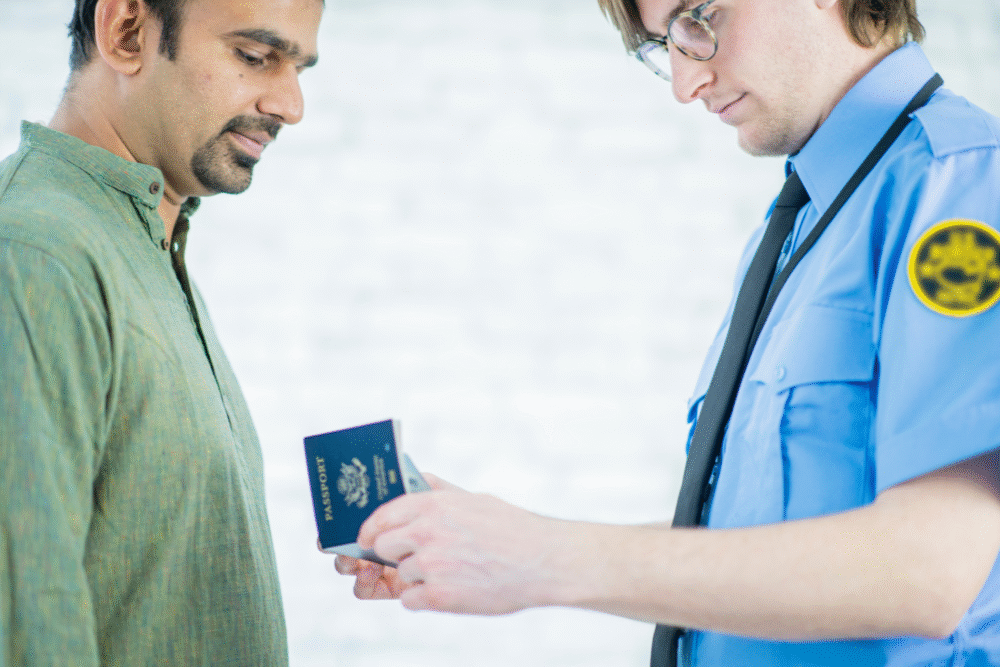Your blue passport isn’t the golden ticket it once was.

For decades, the American passport has been a symbol of global mobility and freedom, a powerful key that could open doors in almost any country you wanted to visit. It was a given that US citizens had one of the most powerful travel documents on the planet. But in the quiet world of diplomatic agreements and visa policies, the landscape has been shifting under our feet.
That long-held assumption is no longer true. The US passport has recently slipped in global power rankings, falling out of the top tier of the world’s most influential travel documents. This isn’t just a matter of national pride; it has real, practical consequences for American travelers who are now discovering that their access to the world is a bit more restricted than it used to be.
1. The ranking is all about visa-free access

The power of a passport is measured by a simple metric: the number of countries its holder can enter without needing to apply for a visa in advance. These rankings, like the well-known Henley Passport Index, are updated regularly based on the visa policies countries have with one another. A higher score means more spontaneous travel and less bureaucratic hassle. The United States has been overtaken by other nations that have been more proactive in negotiating visa-free travel agreements.
While the US still enjoys access to a huge number of destinations, countries like Singapore, Japan, and several European Union members have surpassed it. Their governments have successfully secured more visa waivers for their citizens, giving their passports more power. The drop in the US ranking isn’t because it has lost access to countries, but because other nations have gained more, effectively moving ahead in the global queue.
2. Geopolitical reciprocity plays a major role

Visa policies are rarely a one-way street; they are often based on the principle of reciprocity. If Country A requires citizens of Country B to get a visa, Country B is likely to impose the same requirement on citizens of Country A. The United States has relatively strict visa requirements for visitors from many countries, and this has led some of those nations to respond in kind, limiting visa-free access for Americans.
In contrast, countries that have climbed in the rankings often have more open visa policies, which encourages other nations to grant their citizens visa-free entry as well. As global politics shift, so do these agreements. The US’s stringent entry requirements, while implemented for national security reasons, have the unintended consequence of weakening the relative power of its own passport for citizens looking to travel abroad.
3. This means more planning for American travelers

For the average American tourist, this change might mean a bit more pre-trip homework. Destinations that were once easy to visit might now require applying for a visa online or at an embassy weeks or even months in advance. This adds an extra layer of cost and complexity to travel planning, taking away some of the spontaneity that Americans have long enjoyed. It’s a practical shift from “let’s go” to “let’s check the visa requirements first.”
This is especially true for digital nomads or long-term travelers who hop between countries. The need to secure visas can dictate their itineraries and add significant administrative burdens. While it doesn’t prevent travel, it does mean that Americans can no longer assume that their passport gives them frictionless entry everywhere, a privilege that citizens of top-ranked passport countries still largely enjoy.
4. It reflects a changing global landscape

Beyond the practicalities of travel, the slip in the passport ranking is symbolic of a broader shift in global influence. For years, the power of a US passport was seen as a reflection of the nation’s dominant economic and diplomatic position. As other regions, particularly in Asia and the Middle East, grow in economic strength and diplomatic clout, they are able to negotiate more favorable travel terms for their citizens.
The passport index, in a way, is a soft power scoreboard. The US’s slide out of the top 10 indicates that its influence, while still immense, is no longer as unrivaled as it once was. It signals a move towards a more multipolar world where other nations are increasingly setting the terms of global mobility, quietly reshaping the freedoms and limitations that come with the document you carry.
